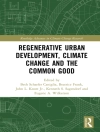Appreciative Inquiry: Research for Change is the first book dedicated to exploring appreciative inquiry (AI) as an approach to change-focused research. More than ever, students and researchers seek to do more than report on what they see following a research study or project, but rather engage the research environment (participants, stakeholders) to promote change. In other words, their studies are as much research-based as they are meant to initiate or sustain social or organizational change. Very often, the nature of this dual purpose – research and change – requires the researcher to use nontraditional approaches that bridge the theory-practice gap. In this book, author Jan Reed draws on the work of David Cooperrider and other pioneers in the area of AI to bridge the current gap between consulting activity and academic research in AI.
The book begins with real-world, international insights and experiences of AI as a research methodology and offers the history and principles of AI. Next, it provides ways of linking and differentiating these activities and exploring the range of ways to engage AI in change-focused research and practice - from research question and research design through data collection, data analysis, interpretation, and dissemination of findings. And perhaps most importantly, the book places AI in the context of other research paradigms and approaches, addressing positivist versus naturalistic stances, social constructionist concepts, and related methods and methodologies such as action research, PAR, ethnography, case studies, and narrative inquiry.
This book is appropriate for use in graduate-level methods courses devoted to appreciative inquiry, change- or community-based research, organizational development and change, and related topics across the social sciences, education, and management. It will also prove invaluable to researchers and professionals who are interested in using AI but need to know how to frame this approach within the greater context of traditional research.
Key Features:
- Comprehensive introduction to Appreciative Inquiry (AI) and the range of debates that it can generate for a researcher or professional used to employing otherwise traditional research models
- International examples from recent published and unpublished projects in which AI was used, with an emphasis on those that shaped policy, planning, and future practices
- Discussion and guidance on how to make the connections between AI and various research paradigms and approaches to research, including positivist versus naturalistic research, social constructionist concepts, action research PAR, ethnography, narrative inquiry, and case studies
- An assessment of the strengths and limitations of AI in research environments
- Practical guidance and ideas for generating different research questions, managing, organizing, and analyzing data, and communicating and disseminating the final results
- Individual and group exercises that draw on organizational development techniques as a way to bring AI concepts to life through practice.
Innehållsförteckning
Foreword
1. Experiences of Appreciative Inquiry
2. A Brief Tour of the History and Principles of Appreciative Inquiry
3. Research Frameworks: Where does Appreciative Inquiry Connect with Research?
4. Key Themes and Issues in Appreciative Inquiry
5. Developing Research Questions and Goals with Communities
6. Information Gathering and Generating: Inclusivity, Partnership, and Collaboration
7. Making Sense: Issues of Questions and Story
8. Communicating and Disseminating Research: Voice, Audience, and Message
9. Research for Change: Ways to Go
Om författaren
Jan Reed (Ph D, Nursing, Newcastle) is Professor of Health Care for Older People and Director of the Center for the Care of Older People at Northumbria University. Reed has been a lecturer and researcher since 1987, teaching nurses, social workers and other professionals in research methods and reflective practice, from undergraduate to post-doctoral levels. Currently, she is supervising 8 Ph D students. 5 of whom are using Appreciative Inquiry as a research framework. She has examined 12 Ph D theses, in the fields of health, social care, social science and education. Over the past 10 years, Dr. Reed has written and published extensively. She has published 60 journal papers, 10 research reports and 5 books (2 edited and 3 authored). In addition, she has edited two academic journals (Health Care in Later Life Edward Arnold, International Journal of Older People Nursing, Blackwell) and has been a paper reviewer for a range of journals including Social Science and Medicine and Health and Social Care the Community. She has also acted as a proposal reviewer for a range of funders, including the Department of health and the Joseph Rowntree Foundation in the UK.












